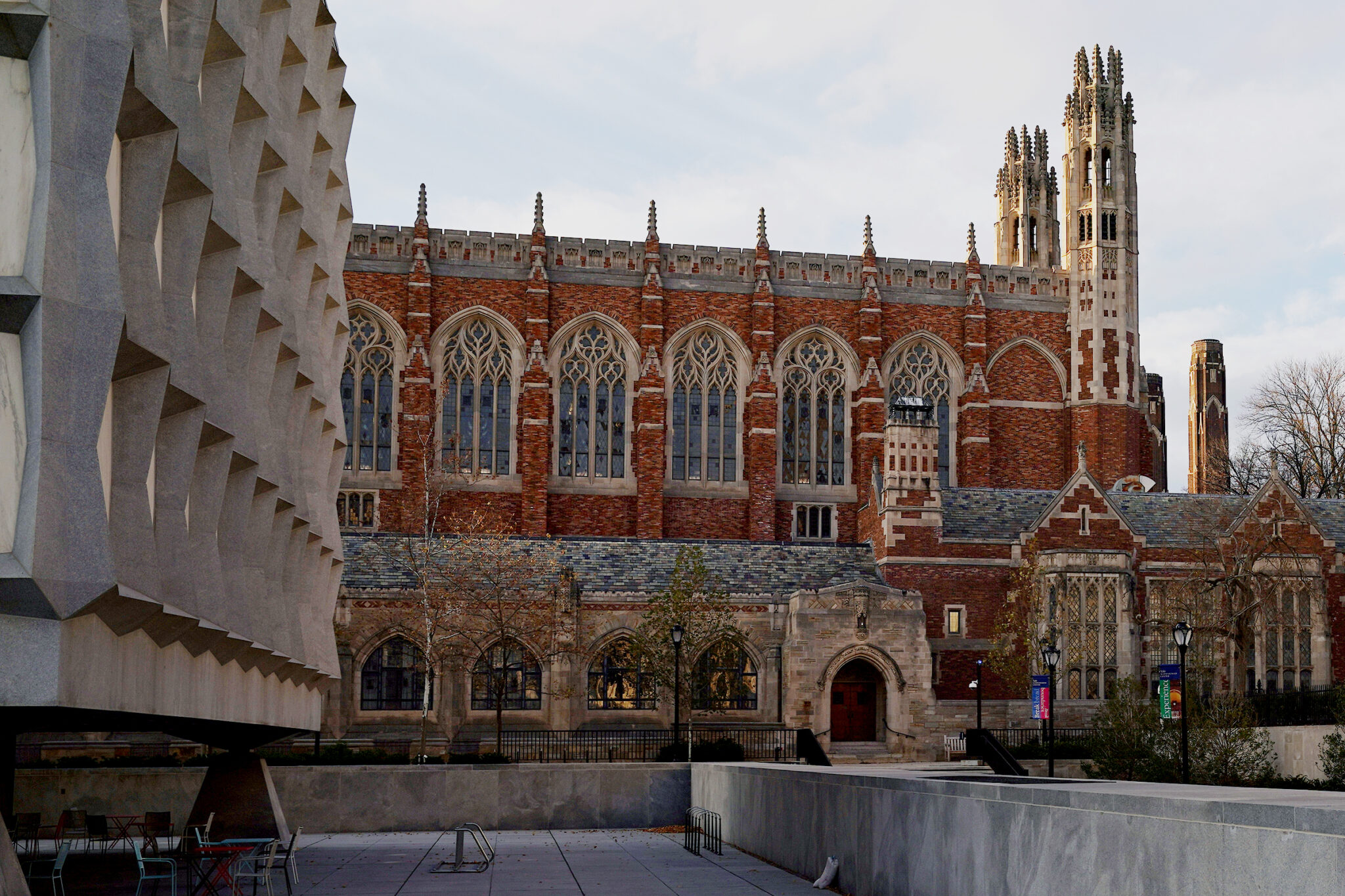Law School clinic sues Department of Veteran Affairs over gender-affirming surgery policy
Yale Law School’s Veterans Legal Services clinic filed suit against the U.S. Department of Veteran Affairs last month, urging the court to order the department to address a rulemaking petition presented to them in 2016 to include gender-affirming surgery in its medical coverage.

Tim Tai, Senior Photographer
Yale Law School’s Veterans Legal Services clinic filed a federal lawsuit on behalf of the Transgender American Veterans Association, or TAVA, against the U.S. Department of Veteran Affairs, or VA, on Jan. 25 over the VA’s policy on gender-affirming surgery.
In 2016, TAVA submitted a rulemaking petition urging the VA to include gender-affirming surgery in its medical coverage. In 2021, Secretary of Veteran Affairs Denis McDonough announced the rule would change to include gender-affirming surgery. But the VA never formally responded to TAVA’s petition. The lawsuit seeks to order the VA to respond to the 2016 rulemaking petition, alleging that the delay violates the Administrative Procedure Act, a law that mandates agencies to make decisions on presented matters within a reasonable timeframe.
The Jerome N. Legal Services Organization, a program at the Law School that offers legal representation to those unable to afford private attorneys and also houses the Veterans Legal Services, or VLS, clinic, is representing the petitioners in this case.
“The VA has been in public to the media in press conferences, repeatedly saying, we recognize that gender confirmation surgery is lifesaving and necessary medical care, we plan to provide it, but they have not formally committed to do so and they have not formally responded to the petition,” Sonora Taffa LAW ’24, a VLS clinic member involved in the case, told the News. “We don’t know why they’re delaying so much … but we do know that they have a legal obligation to respond one way or the other.”
Taffa told the News that the main point of the lawsuit is to ensure accountability from the VA and the government. Though the lawsuit focuses on hearing a response from TAVA, Taffa said the VLS hopes the response is positive.
Taffa also highlighted the two members of TAVA who submitted declarations in the petition for writ of mandamus, which is a court order instructing a government official to either perform or refrain from a specific action. She noted that their testimonies in the lawsuit were “really powerful.”
“Everyday that the VA delays its response, transgender veterans are just left in the dark, and they’re left in limbo,” Taffa told the News. “They’re starting to feel hopeless, understandably.”
In an email to the News, Jack Baisley LAW ’25, who is also a member of the VLS clinic, wrote that it is the VA’s job to serve all veterans, including transgender veterans. Baisley said that the VA’s silence on the matter “ignore[s] the cries of the transgender veterans they seek to serve.”
When reached by the News, Gary Kunich, a public affairs specialist for the VA, declined to comment on the lawsuit as he said that the VA “doesn’t comment on potential and pending litigation.”
In a June 2021 speech, Secretary McDonough said that the department was taking “the first necessary steps” to expand the VA’s care to include gender-confirmation surgery.
“There are several steps to take, which will take time,” McDonough said in his 2021 speech. “But we are moving ahead, methodically, because we want this important change in policy to be implemented in a manner that has been thoroughly considered to ensure that the services made available to veterans meet VA’s rigorous standards for quality health care.”
Taffa said that despite promises made by McDonough promising to provide these surgeries, the lack of a response to TAVA’s petition has left many veterans unable to access the surgery.
Alex Johnson LAW ’24, who is involved in the VLS clinic on this case, spoke with the News about the importance of bringing this case forward for all members of the veteran community.
“If you’re in the veteran community that should be concerning, because you should be able to rely on Secretary McDonough because, you know, you’re supposed to be able to rely on the VA,” Johnson said. “That’s the whole point of the VA is that they’re supposed to take care of you when you return from your service.”
Johnson also highlighted the importance of the lawsuit for the transgender veteran community specifically. She noted that gender confirmation surgery can often be lifesaving care for these veterans and that denying transgender veterans access to gender confirmation surgery can pose a significant risk to their mental health.
Johnson emphasized that veterans and transgender individuals are at a uniquely high risk of suicidal ideation and self-harm, and that the intersection of these identities further raises the danger of such mental health struggles.
“Without access to this care, you are essentially consigning these veterans to you know, a higher risk of suicide and potentially death,” Johnson told the News.
Johnson also mentioned the financial burden such surgery can cause for veterans. Johnson noted that the VA provides full financial coverage for the procedures they cover. But, she said, if a veteran seeks gender confirmation surgery through a private doctor or an insurance plan, the insurance company may or may not cover it, ultimately leaving the financial burden on the patient.
She noted that even transgender veterans with private insurance may encounter prohibitive copays or limited coverage, especially if they reside in states where legislative restrictions limit access to gender-affirming care. Such issues can make the VA their sole option for essential procedures.
“You’re basically just cutting off opportunities for transgender veterans to receive essential care at all ends, which is just absolutely devastating,” said Johnson.
Yale Law School is located at 127 Wall St.
Update, Feb. 12: This article has been updated to more accurately reflect Baisley’s comments on the role of the VA.







